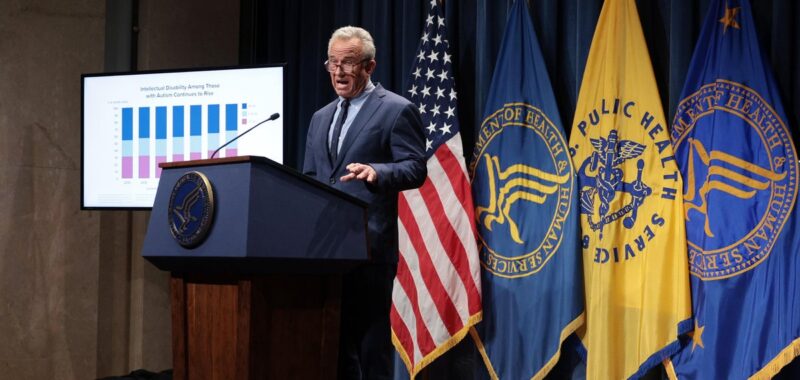The National Institutes of Health is amassing private medical records from a number of federal and commercial databases to give to Health and Human Services Secretary Robert F. Kennedy Jr.’s new effort to study autism, the NIH’s top official said Monday.
The new data will allow external researchers picked for Kennedy’s autism studies to study “comprehensive” patient data with “broad coverage” of the U.S. population for the first time, NIH Director Dr. Jay Bhattacharya said.
“The idea of the platform is that the existing data resources are often fragmented and difficult to obtain. The NIH itself will often pay multiple times for the same data resource. Even data resources that are within the federal government are difficult to obtain,” he said in a presentation to the agency’s advisers.
Medication records from pharmacy chains, lab testing and genomics data from patients treated by the Department of Veterans Affairs and Indian Health Service, claims from private insurers and data from smartwatches and fitness trackers will all be linked together, he said.
The NIH is also now in talks with the Centers for Medicare and Medicaid Services to broaden agreements governing access to their data, Bhattacharya said. In addition, a new disease registry is being launched to track Americans with autism, which will be integrated into the data.
Between 10 and 20 outside groups of researchers will be given grant funding and access to the records to produce Kennedy’s autism studies. Bhattacharya did not give details on how they would be chosen, but said their selection would be “run through normal NIH processes.”
While the selected researchers will be able to access and study the private medical data, Bhattacharya said they will not be able to download it. He promised “state of the art protections” to protect confidentiality.
By bringing the data into one place, he said it could give health agencies a window into “real-time health monitoring” on Americans for studying other health problems too.
“What we’re proposing is a transformative real- world data initiative, which aims to provide a robust and secure computational data platform for chronic disease and autism research,” he said.
They are planning a “rapid timeline” to launch the autism research using this data, he said, but did not give specifics on when it would start or how long the studies would take. Kennedy last week appeared to walk back his earlier prediction that they would have all the answers to autism’s causes by September.
“We will have some of the answers by September, but it’s going to be an evolving process,” he said, speaking with reporters.

